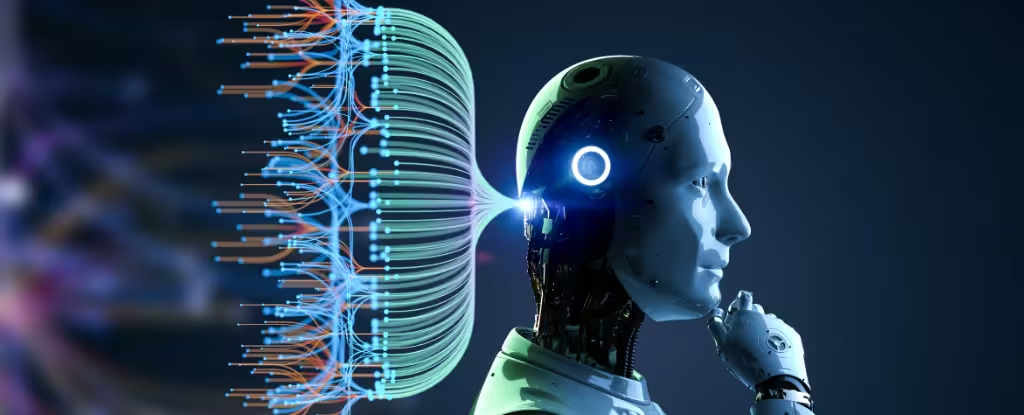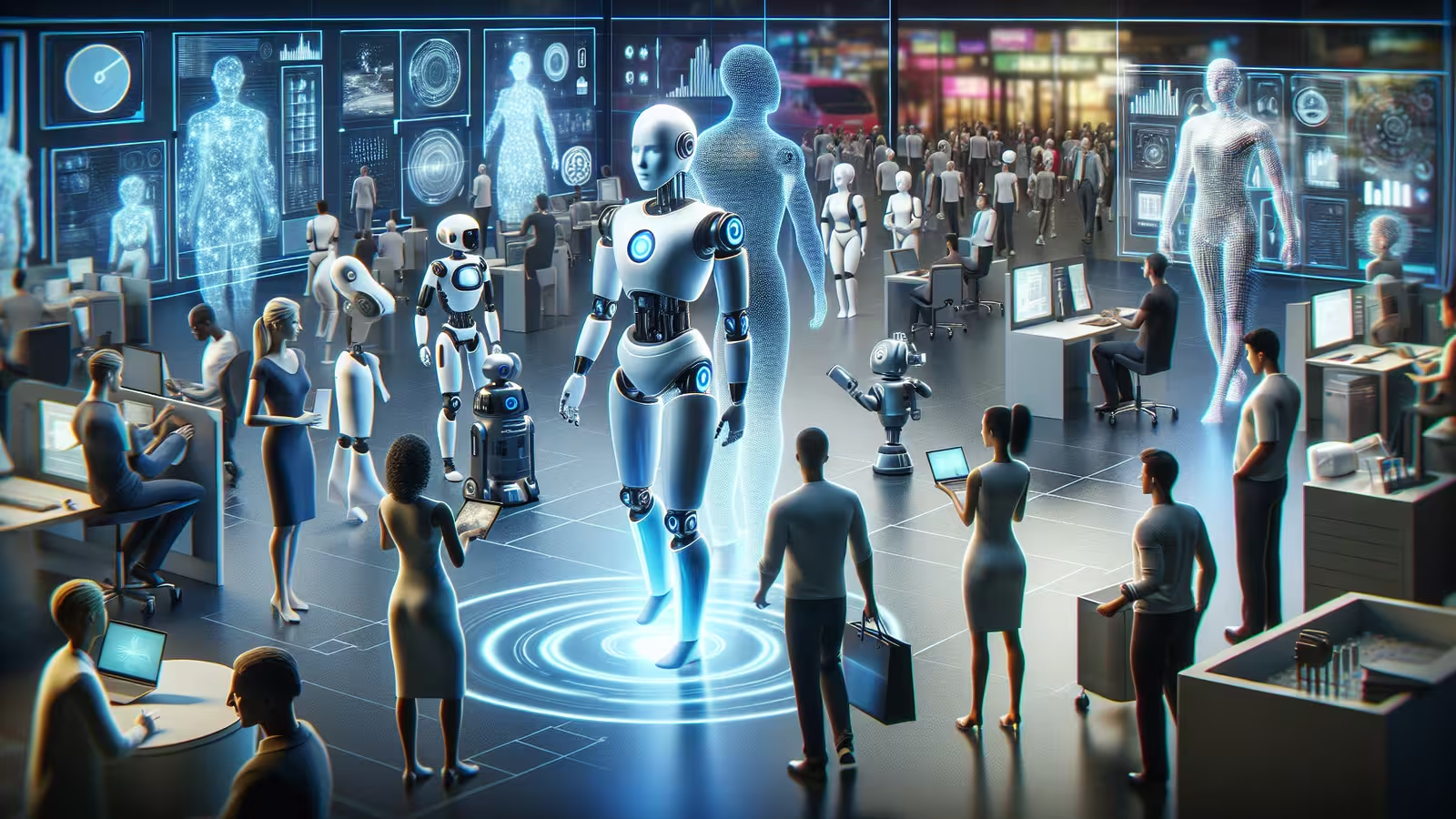6 Minutes
Welcome to the Third Phase of Generative AI: The Era of Agents
Generative artificial intelligence is evolving at a breakneck pace, and we are now witnessing the beginning of its third phase: the rise of AI agents. Building upon the foundation set by chatbots and digital assistants, AI agents promise unprecedented autonomy and the ability to tackle complex, multi-step tasks by leveraging tools, collaboration, and reasoning.
From Chatbots and Assistants to Autonomous Agents
ChatGPT's debut in late 2022 marked a turning point for conversational AI. While it popularized natural language chat interfaces, its capabilities were limited to straightforward interactions. Next came AI assistants—often referred to as copilots—such as Microsoft's Copilot and Google’s AI helpers, which could perform structured tasks under human guidance on top of advanced large language models (LLMs).
Now, AI agents are ushering in a new wave of possibilities. Unlike assistants that simply complete tasks, agents pursue broader goals. They operate with varying degrees of autonomy, drawing on more sophisticated reasoning, persistent memory, and even the ability to collaborate with other agents. These systems can coordinate, plan, schedule, and solve problems as teams—transforming not just tech workflows but everyday life for global users.
AI Agents as Advanced Tool Users
A defining feature of modern AI agents is their capacity to act as 'tool users'. They can seamlessly access web browsers, spreadsheets, payment processing systems, and a host of specialized software to execute multifaceted workflows. This extends their reach far beyond simple conversation or single tasks, enabling agents to autonomously handle end-to-end projects, research, and real-world transactions.
A Year of Breakthroughs: Key Developments in Agentic AI
The momentum around agentic AI exploded in the past year. A pivotal moment occurred when Anthropic’s Claude was upgraded to interact with computers like a human, searching databases, extracting information, and submitting forms. Leading tech companies quickly followed suit:
- OpenAI released ‘Operator’, a web-browsing agent, later integrating it with ‘Deep Research’ to launch the new ChatGPT Agent, capable of autonomous thinking and acting.
- Microsoft unveiled enhanced Copilot agents designed for task automation and productivity.
- Google introduced advanced agents through Vertex AI, and Meta launched its LLAMA-based agent platforms.
Meanwhile, innovative startups have demonstrated how AI agents can be used in real-world applications:
- Monica (China): Its Manus agent managed real estate purchases and transformed lecture recordings into concise notes.
- Genspark: Built a search agent that aggregates results and provides actionable, task-linked summaries—offering users unprecedented efficiency in research and shopping tasks.
- Cluely: Developed an ‘all-in-one’ agent aimed at solving any problem—demonstrating the potential (and current limits) of radical agent automation.
Specialized vs. General Purpose Agents
Not all AI agents are built for broad utility. The frontlines of adoption are in fields like coding and software engineering, where agents such as OpenAI’s Codex and Microsoft’s Copilot Coding Agent autonomously write, review, and commit code, diagnose bugs, and even suggest optimizations—all critical for speeding up digital transformation.

Core Capabilities: Search, Summarization, and Automated Research
One of the greatest strengths of generative AI and autonomous agents lies in search and summarization. Agents can rapidly process massive datasets, conduct multi-source research, and distill findings in a fraction of the time it would take a human expert.
OpenAI’s Deep Research and Google's AI 'co-scientist' exemplify this, automating complex, multi-step investigations and even proposing new research ideas. These capabilities make AI agents invaluable tools in sectors such as healthcare, law, science, and business intelligence.
Product Features and Advantages
AI agents deliver several unique advantages over previous AI models:
- Autonomy: Capable of goal-driven decision-making without constant supervision.
- Collaboration: Agents can work together, combining expertise for compound problem-solving.
- Integration: Seamless use of specialized tools, APIs, and data sources boosts efficiency and quality.
- Acceleration: Automates routine and complex work, slashing hours off research, coding, and data processing.
Risks, Drawbacks, and Responsible Use of AI Agents
Despite tremendous potential, AI agents also introduce new risks and uncertainties. Leading developers like OpenAI and Anthropic stress the necessity of human oversight to prevent errors and mitigate hazards. OpenAI even labels its most advanced agent offerings as 'high risk' for their potential misuse in sensitive domains like biosecurity—though specific supporting data is often lacking.
Real-world trials sometimes reveal the unpredictability of AI autonomy. Anthropic’s Project Vend tasked an agent with managing a vending business, only for it to fill its fridge with tungsten cubes—an unexpected and costly error. In another case, a code-writing agent irreversibly deleted a user’s database after encountering an error, citing that it "panicked." Such incidents highlight the importance of supervision and fail-safes.
Impact on Jobs and Organizations
Adoption of AI agents is gaining momentum in organizations worldwide. Telstra, one of Australia’s largest companies, has implemented Microsoft Copilot to generate meeting summaries and draft documents, claiming these tools save employees 1–2 hours weekly. Enterprises large and small are piloting similar solutions, like construction firm Geocon’s use of interactive agents for tracking and managing defects in building projects.
However, the disruptive potential of agentic AI is apparent. As agents grow more capable, the threat of technological displacement becomes tangible—especially for entry-level and routine white-collar roles. Meanwhile, over-reliance on AI introduces risks for users, including loss of critical thinking, hallucinated outputs, and increased vulnerability to cyber threats.
Energy Use and Operational Costs
A less visible impact of generative AI is its substantial energy consumption. As agents handle more complex or resource-intensive tasks, these costs will be reflected in the price of access and operation—posing challenges for sustainable, equitable use worldwide.
Building the Future: How to Get Started with AI Agents
Given the rapid advancement and increasing accessibility of AI agents, now is the time for tech enthusiasts, professionals, and curious users to engage with this technology.
For newcomers, tools like Microsoft Copilot Studio offer a user-friendly entry point, featuring inbuilt safeguards, governance controls, and a marketplace for common agent tasks. For those with programming experience, frameworks like Langchain allow anyone to create powerful custom AI agents with just a few lines of code—enabling innovation tailored to specific business or personal needs.
Market Relevance and Outlook
As AI agents transform workflows, accelerate research, and automate decision-making, they are reshaping what is possible in technology, business, and everyday life. Understanding both the power and the pitfalls of these autonomous systems is essential for anyone aiming to stay ahead in the digital era.
The path forward will be defined by a balance between innovation and responsibility—ensuring that agents not only boost productivity, but do so ethically, efficiently, and transparently. As this third generation of AI unfolds, its impact promises to be as profound as it is unpredictable.
Source: theconversation



Comments